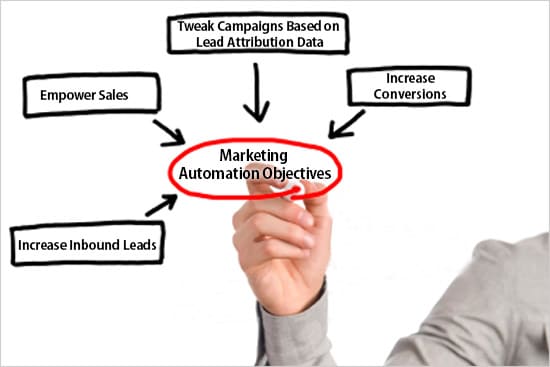In the past few years, marketing automation has been all the rage for digital marketers and companies who are on the cutting edge of technology. 79% of top-performing companies have been using marketing automation for more than 2 years. (Gleanster, Q3 2013 Marketing Automation Benchmark, Aug 2013). Smaller companies with limited resources are just starting to consider implementing it; others are not really not sure what “marketing automation” means when possibly being pitched by a marketing agency.
Here at RTL, we like to communicate in ways that (1) help you understand exactly what we are talking about in layman’s terms and (2) give you some information that might help you decide on if changes in strategy might be beneficial to company’s bottom line. With that being said…
What exactly is “marketing automation”?
Marketing automation is setting up automated marketing campaigns triggered by your prospects and customers according to how they engage on your website. In a nutshell, marketing to them according to what they are interested in without manual labor associated. Need an example? Notice how when you go onto Amazon website and you look at a book by a certain author and in the following days you get emails suggesting books by that author or genre? That is marketing automation!
So, you ask yourself…what will marketing automation do for my business? We thought that we would share with you 5 statistics that we think can stop you in your tracks and help you realize how it can impact your business.
- B2B marketers who implement marketing automation increase their sales-pipeline contribution by 10%. (Forrester Research ,The Forrester Wave™: Lead-To-Revenue Management Platform Vendors, Q1 2014, Jan 2014).
- 63% of companies that are outgrowing their competitors use marketing automation. (The Lenskold and Pedowitz Groups, 2013 Lead Generation Marketing Effectiveness Study, Nov 2013).
- Companies using marketing automation see 53% higher conversion rates (initial response-to-MQL) than non-users, and an annualized revenue growth rate 3.1% higher than non-users. (Aberdeen Group, Marketing Lead Management Report, Jul 2012).
- 78% of successful marketers cite marketing automation systems as most responsible for improving revenue contribution. (The Lenskold and Pedowitz Groups, 2013 Lead-Generation Marketing Effectiveness Study, Nov 2013).
- B2C marketers who take advantage of automation – which includes everything from cart abandonment programs to birthday emails – have seen conversion rates as high as 50%.(eMarketer, Email Marketing Benchmarks, Feb 2013).
If decreasing your employee’s workload while increasing marketing output and company revenue sounds like a good idea to you then maybe marketing automation is something you should consider adding to your strategy? Take a moment to consider and then let us know how we can assist you in achieving your revenue goals!





